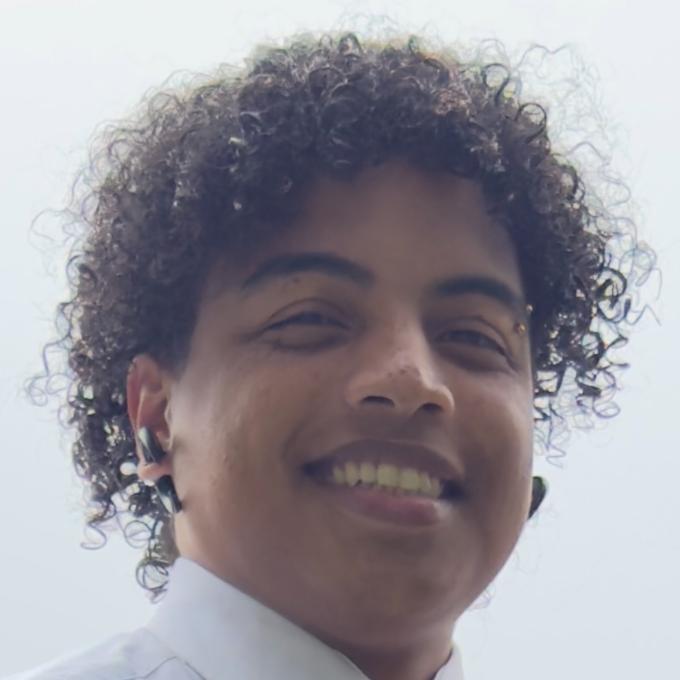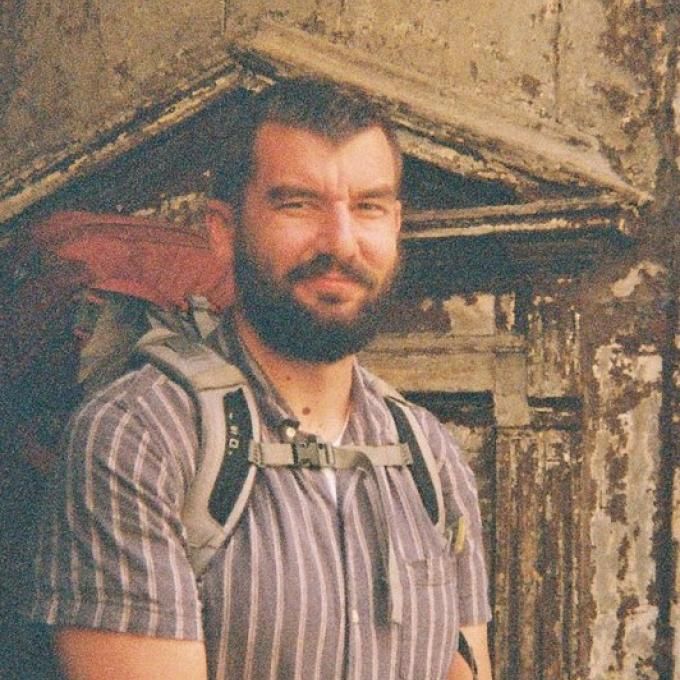Romel Robinson
Breadcrumb

Romel Robinson
Lecturer
Emily Lavrador
Breadcrumb

Sam Kiser
Breadcrumb

Sam Kiser
Lecturer
- B.S. Environmental Resources Engineering, Cal Poly Humboldt.
- ENGR 225 - Comp Methods ENGR II Lab
- ENGR 331 - Thermodynamics & Energy Systems Lab
Devin Ketchum
Breadcrumb

Devin Ketchum
Lecturer
Areas of Interest
I’m a maker at heart, whether it’s coding a system, building hardware, or sewing a drumstick head. As an educator, I’m passionate about showing students how engineering and computer science connects to creativity, identity, and the world around us.
- BS in Mechanical Engineering from Oklahoma State University
- MS in Computer Engineering from Virginia Tech
- CS 243: Computer Architecture
- ENGR 123: Intro to Fabrication
Ammar Jafaripournimchahi
Breadcrumb

Ammar Jafaripournimchahi, Ph.D.
Visiting Professor
- Postdoctoral Researcher – Autonomous Vehicle test and training technologies, UJS.
- Doctor of Philosophy, Transportation Engineering (Automotive systems), Southeast University.
- Master of Science, Mechanical Engineering, University of Guilan.
- Bachelor of Science, Mechanical Engineering, University of Mazandaran.
- ENGR 365 – Machine Design (Cal Poly Humboldt)
- ENGR 225 – Computational Methods I (Cal Poly Humboldt)
- Thermodynamics
- Fluid Mechanics
- Statics
- Engineering Analysis (ENGR 1406)
- Engineering Design Process (ENGR 1300)
Lonny Grafman
Breadcrumb

Lonny Grafman
Lecturer
- BA, BS, Humboldt State University
Renewable Energy and Water, Design, International Development, Innovation, Social Entrepreneurship, Founder of Appropedia, Author of To Catch the Rain
Elise Culbertson
Breadcrumb

Elise Culbertson
Lecturer
- ENGR 115 - Intro to Engineering Lab
- ENGR 333 - Fluid Mechanics Lab
- ENGR 380 - MidPac Competition
Angel Cortez Ramirez
Breadcrumb

Heather Burns
Breadcrumb

Heather Burns
Lecturer
- ENGR 205 - Intro to Design Lab
- ENGR 210 - Solid Mechanics: Statics
Robert Brown
Breadcrumb

Robert Brown
Lecturer
- B.S. Natural Resources Planning, Humboldt State University
- ENGR 410 - Environmental Impact Assessment
Owner, Streamline Planning Consultants. Environmental impact assessments (CEQA/NEPA), development permitting (Federal, State, local), sustainability planning, biological assessments, stream and wetland restoration, stormwater design, instream mining, city planning services.





